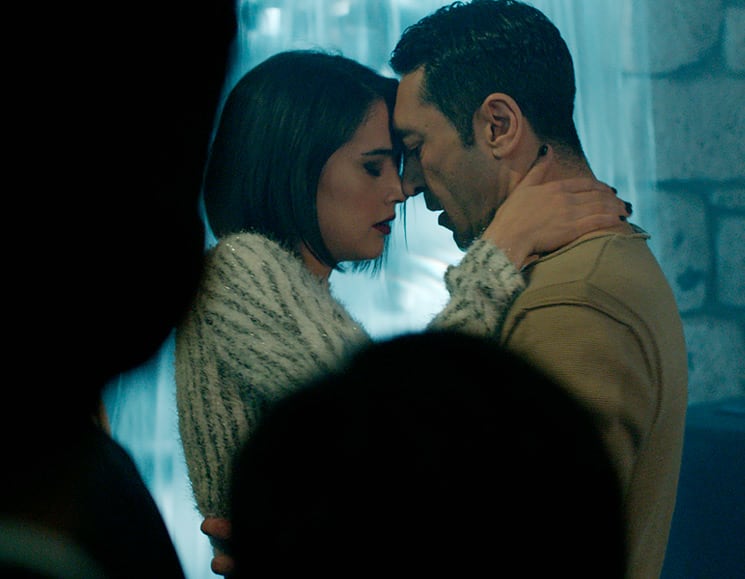Turkish director Yesim Ustaoglu's Clair Obscur seems both personal and impersonal at once, a character study of two women that keeps an academic distance from its subjects while still providing viewers with a deeply intimate look into their private fears, hopes and dreams.
In modern-day Turkey, Chehnaz (Funda Eryiğit), a liberal psychiatrist who lives with her long-term partner, begins to treat young housewife Elmas (Ecem Uzun) after she suffers a nervous breakdown as a result of the strict fundamentalist household she is forced to upkeep. The two women, who seem to exist on two seemingly disparate sides of female liberation, realize that they have more in common with each other than they ever would have thought.
Clair Obscur is shot almost in documentary style, focusing on the minute details of each woman's life as we (and the camera) pan closer and closer in to their personal, intimate issues. When Chehnaz begins to suspect that her partner is having an affair, the cinematography is cool and sad, and we empathize with her struggles. When Elmas begins to learn how to assert herself in small rebellions, there's a warm and celebratory feel to close-ups on her furtive smiles. When the women are pensive or lost in thought, the camera switches to wide landscapes to capture the vastness of the issue. In these ways, Ustaoglu establishes each woman's relationship to the patriarchy; by focusing on minute details that encapsulate the different ways it can manifest, the director tells a story that stretches beyond the frame.
While it moves at a glacial pace with some occasionally stilted, forced scenes, Clair Obscur is thoughtful, meaningful and beautifully shot.
(Independent)In modern-day Turkey, Chehnaz (Funda Eryiğit), a liberal psychiatrist who lives with her long-term partner, begins to treat young housewife Elmas (Ecem Uzun) after she suffers a nervous breakdown as a result of the strict fundamentalist household she is forced to upkeep. The two women, who seem to exist on two seemingly disparate sides of female liberation, realize that they have more in common with each other than they ever would have thought.
Clair Obscur is shot almost in documentary style, focusing on the minute details of each woman's life as we (and the camera) pan closer and closer in to their personal, intimate issues. When Chehnaz begins to suspect that her partner is having an affair, the cinematography is cool and sad, and we empathize with her struggles. When Elmas begins to learn how to assert herself in small rebellions, there's a warm and celebratory feel to close-ups on her furtive smiles. When the women are pensive or lost in thought, the camera switches to wide landscapes to capture the vastness of the issue. In these ways, Ustaoglu establishes each woman's relationship to the patriarchy; by focusing on minute details that encapsulate the different ways it can manifest, the director tells a story that stretches beyond the frame.
While it moves at a glacial pace with some occasionally stilted, forced scenes, Clair Obscur is thoughtful, meaningful and beautifully shot.




